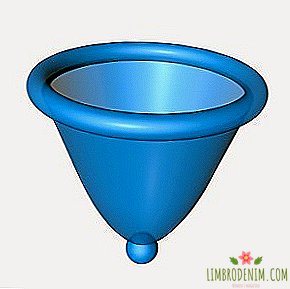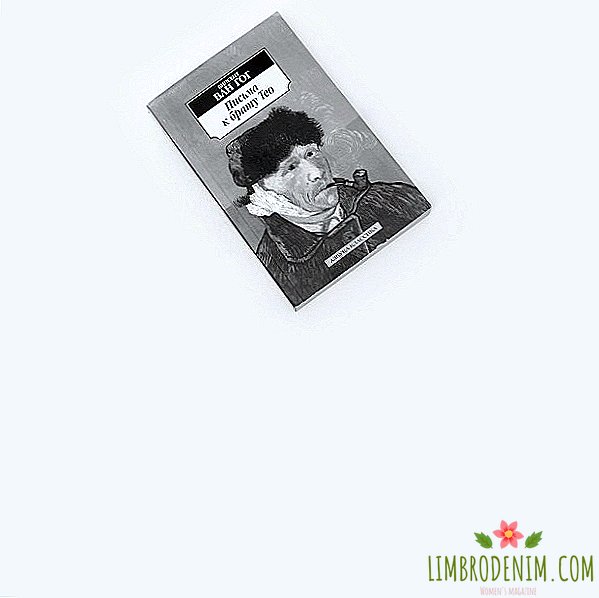Older is not worse: What's wrong with the concept of "anti-age"

margarita virova
Allure This Week, once the former main publication on cosmetics, and now transformed into a progressive gloss, has published a column by editor-in-chief Michel Lee from the September issue: it states that the publication will no longer use the term "anti-image." Moreover, no one is going to call for the abandonment of the services represented in this market. We understand where the impulse to fight against the negative presentation of age-related changes in appearance came from and what is dangerous about “anti-aging” marketing.
To the fact that the prefix "anti-aging" in theory can be attached to any beauty-practice, we have become accustomed to: anti-aging cosmetics, anti-aging medicine, anti-aging massage, anti-aging yoga and anti-aging diet. Demand and supply in the field of a variety of preventive measures for aging are at their peak: botulinum toxin preparations are popular, well studied and safe, and home remedies with really working retinol are gradually entering the market - the optional luxury is becoming increasingly available. But the matter is not in the achievements of science and the very amazing tools that are constantly being studied and invented: after all, the breadth of choice and accessibility is not bad. But over time, marketing has learned to sell services for the "prevention of aging" in dubious ways and we learned that age is a disease that needs to be managed with all its might.
Revenues in this area of the industry are growing steadily: in the United States in 2016, its profit amounted to more than 150 billion dollars, which is 7% more than in 2015. This is due, inter alia, to the fact that in advertising campaigns and other sales engines, rhetoric has intensified, linking the struggle with age-related changes to health status - despite the fact that today there are no means capable of slowing down the aging of the body in a complex way.

Marketing strategies present the fight against aging as a necessity
Most anti-aging procedures and products do not work with the state of the body, but still with the appearance of your face and body: something more serious, something weaker. But research and notable discoveries in this area are made almost every year. The growth of the industry resulted in marketing strategies that represent the “fight against aging” as a necessity, not an addition, which can be chosen according to your own desires.
The concept of "anti-age" has become very streamlined over the past thirty years: it is also applied to serious expensive medical procedures, and to practically popular methods, which also sell well. The word, reflecting the meaning of aging as something bad, has become a magical sticker, which is successfully marked even by useless means. Such, for example, is the story of commercially available products with a "lifting effect": not a single cream that can be easily bought at a chain store will not provide a long-term treatment of the skin "back to 25", after which the buyer comes. The word "effect" in this case means a temporary (until the moment when the cream or serum disappears from the surface of your skin) a lift - with a dozen additional conditions: if the concentration of active substances is sufficient, if you know how to use it and, alas, if your skin it's hard to call mature.
Nevertheless, growing up and aging are inevitable for each of us: metabolism becomes slower with age, hormonal status changes, and the fact that the skin loses its ability to regenerate, and body weight increases slightly, is only an external reflection of a whole complex of processes. The confusion in concepts leads to the fact that the objective mixes with the mythical: the fact that our body ceases to fit into the demands of the cult of youth is equated to more serious phenomena, like diseases accompanying aging. No one wants to encounter the latter, and the objective reality in which our body begins to have other needs with age really exists: the accumulation of genetic mutations with age increases the risk of cancer - the importance of sun protection and regular checkups increase. And it is more important than visible wrinkles, gray hair or pigmentation.
The spirit of the time is changing, and it is noticeable - we still do not rarely see adult, beautiful and active women on the screen and advertising spreads. Three years ago, Charlotte Rampling became the face of NARS, not ashamed of her wrinkles, the last cover of Allure honors Helen Mirren - as a person, an amazing actress and as a beautiful woman.

Increasing age is not a reason to write off your abilities, desires, talents and sexuality
Mentioning a niche, but still noticeable popularity of the modeling agency Aldushka or the legendary Iris Apfel, which to this day is an unprecedented style icon, probably is not even worth it - but there are still many examples of this. All about the fact that increasing age is not a reason to write off your abilities, desires, talents and sexuality.
Why is the term "anti-age" better sunk into oblivion? He categorically declares age as our enemy, while it is much better to make friends with him and perceive him as a change of circumstances in which our body has new features and new needs - and you just need to know about it, and not be afraid. Beauty is not limited to years, and outside the conditional thirty years darkness and extinction does not come, and beauty practices, directed not at healthy maturation, but at disguising age, often add neuroses, rather than real life benefits. How we want to look and feel is a personal matter for everyone. And if the industry becomes friendlier and weakens control, learning to sell people to agree with age, its income will not decrease and it is unlikely to lose customers who are important and interested in looking after themselves. Starting to call the “anti-aging” cosmetics at least “age-related” is a small amendment, but it implies a change in our attitude towards age. And this is a way in which there is much more freedom and awareness, with which it is unequivocally easier to live at twenty, at thirty, and at sixty.




